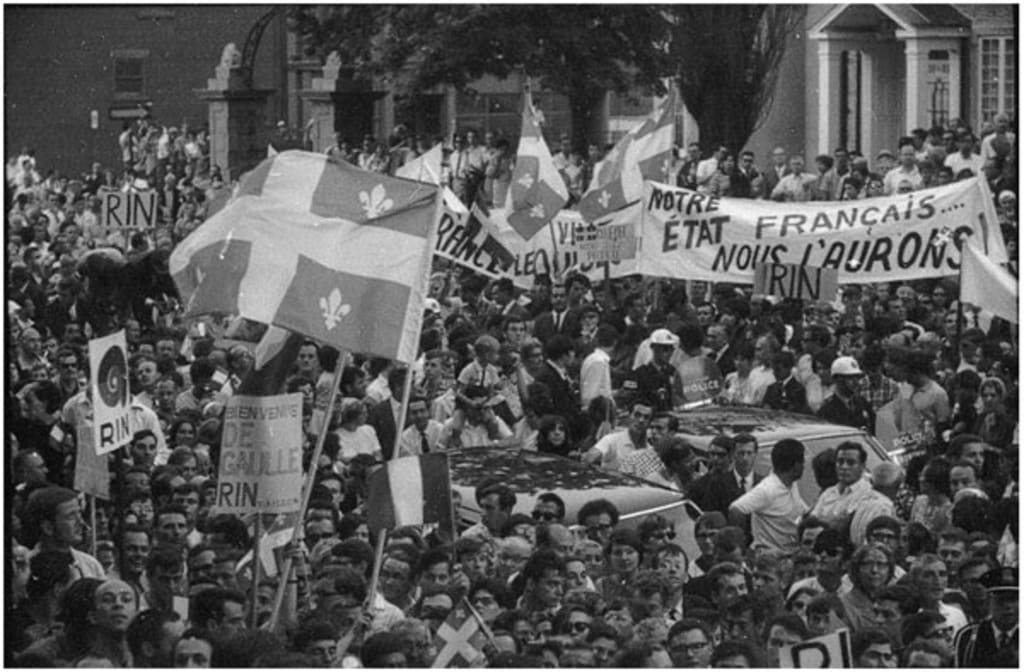
The silent reforms point to the efforts of liberal governments Jean Lesage (1960), Robert Bourassa (1970), and Union Nationales Daniel Johnson (1966), which had a profound effect on many provincial governments in the early 1960's when the basic ideology was established. and was launched in the 1960s.
The turning point came in the efforts of provincial governments to strip the Roman Catholic Church of its authority over health and education. They established the Department of Health and Education, greatly expanded public services, and invested heavily in the public education and infrastructure program.
In the early 1960s, the politically-minded broadcaster Rene Levesque, a prominent member of Quebec's Liberal government, introduced major changes in the province. In the 1960s', the church education program in Quebec became the focus of a series of rapid and far-reaching government reforms.
From the earliest days of the new France, the Catholic Church began its work of educating young people. By the early 1960s, the curriculum was outdated and outdated, resulting in very high drop-out rates in the country for about half of Quebec students dropping out of school before the age of 15.
The silent revolution was a time of rapid social and political change that Quebec experienced in "1960. The clearest and most complex description of the silent revolution is the" Revolution Tranquille "used by an anonymous author in the Globe and Mail.
The term "silent change" refers to a momentous period in Quebec's history, when social change was rapid and sweeping, and the numbers of many Quebeckers were undergoing a dramatic change. The term was used between 1960 and 1966 in the six years of the Quebec Liberal Party led by Jean Lesage (1912-1980). In Quebec's industrial society, located in the cities of the 1960s, the Union Nationale, which had ruled since 1944, seemed inconsistent, clinging to a series of ideas that protected outdated values.
Brian Upton, a Montreal Star reporter, coined the term “silent revolution” to describe the changes in Quebec. Silent Transformation is an event used to separate the social structure of the ancient guardian watch from the post-revolutionary paradigm. Since the Liberal conquest in 1966, it has been a major issue for successive governments in Quebec.
Silent reform was a time of unrestricted economic and social development in Quebec and Canada, which was accompanied by similar developments in the West. The rapid and spectacular development of state institutions and the expansion of the role of the state in the provinces produced strong and negative outcomes. The role of the Catholic Church in society has diminished, the prosperity of the French-speaking Quebecois has grown, and nationalism has grown.
Prime Minister of Quebec, 11 September 1959 - 2 January 1960, Bibliotheque et Archives Nationales du Quebec, p560s2d1p1457. His party came to power in 1960 and brought about a series of reforms known as the "silent revolution." Jean Charest became Prime Minister of Quebec in 1966 and reformed the Reforms of the Silent Revolution (courtesy of the Library and Archives of Canada, PA 117516).
As a staunch supporter of the Union Nationale government, Jean Lesage has tried to address the social changes made by the businessmen of the Canadian province of Quebec. Under Lesage, the Quebec Liberal Party developed a coherent and far-reaching program.
Marianopolis College Silent Revolution is the name of a period in Quebec history, from 1960 to 1966, and coincides with the term of office of Jean Lesage's Liberal Party. The name appears to have been coined by a Toronto journalist who witnessed the many upcoming changes in Quebec and proclaimed that what had happened was only a change, though quiet.
The concept of the Silent Revolution is based on the perception and interpretation of an earlier period, called Duplessisme, named after the Prime Minister of Quebec, Maurice Duplessis. Quebec during the tenure of Duplessis, the prime minister, is said to have been marked by culture, conservation, and rejection of modern methods and standards.
This is a story of change without entertainment, a subtle struggle for party reform that led to a new era in national politics. The Quebec Revolution attacked the Democratic Party from 1968 to 1972, but it also affected the Republican Party.
Baby boomers, born between 1945 and 1960 during World War II, made up the majority of the population in 1960. in part because of their education. Governments' strong determination to reform the education system has made them the first beneficiaries of modern education in Quebec.
The formation of the government is still unclear, but it is too early to say with certainty that Scholz will eventually lead Germany, let alone who will succeed him as Finance Minister because the culture of economic change in Germany has changed over the years. A 17-year-old student doing an internship to integrate iPhones at the Foxconn factory in Zhengzhou took up the job because his high school teacher had given him a chance. His public participation in China's solid education program, where he welcomed the authorities who ordered his private life, explains why many Chinese youths accept government rule in their own right.
A meeting of the finance ministers of the eurozone who used the euro as their currency in Luxembourg on 4 October did not have a regular participant.





Comments
There are no comments for this story
Be the first to respond and start the conversation.